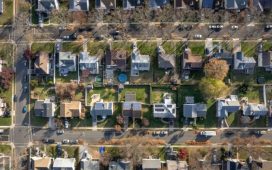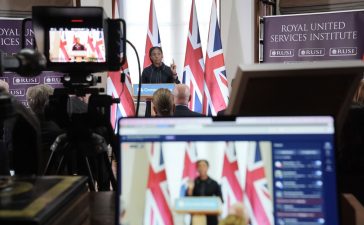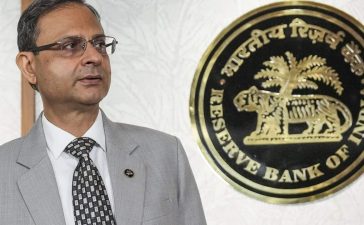The UK economy is showing signs of beginning to stabilise from the economic slowdown triggered by soaring inflation and ever-higher interest rates, amid hopes that a peak in borrowing costs has been reached.
Figures on the housing market and manufacturing on Friday showed steadying levels of activity, amid a modest decline in mortgage costs for households and rising confidence among industrial firms.
With inflation cooling and the Bank of England having paused its most aggressive round of interest rate rises in decades, economists said there were tentative signs of pressure easing on households and businesses. However, activity levels across the economy at large remain weaker than before the cost of living crisis.
According to the latest snapshot from S&P Global and the Chartered Institute of Procurement and Supply (Cips), UK manufacturing is “potentially turning a corner” as the rate of decline for industrial production eased sharply.
Manufacturing output contracted for the ninth consecutive month in November, albeit at a slower pace than in previous months after posting a stronger performance than anticipated among City economists.
The purchasing managers index (PMI), compiled from firms’ survey responses on current economic conditions, rose to 47.2 in November, up from 44.8 in October, reaching the highest level since April. The PMI was still below the 50 mark that separates private sector growth from contraction.
Fhaheen Khan, senior economist at the trade group Make UK, said the figures indicated that manufacturing activity “may be beginning to stabilise”, despite the sector continuing in its longest period of decline for more than a decade.
“There are positive signs now that cost pressures are softening with input prices deflating, giving manufacturers breathing room to plan for the year ahead,” he said.
“However, as the backlog of old work dries up there is a risk that a lack of new orders will result in a decline in investment and employment next year, particularly as we approach a time of great uncertainty in the political climate.”
Separate figures from Nationwide, the UK’s biggest building society, revealed an increase in UK house prices for a third consecutive month in November as the market responded to hopes that mortgage rate costs had peaked.
House prices rose by 0.2% month on month in November, after a 0.9% rise in October and a 0.1% rise in September. Economists polled by Reuters had forecast a 0.4% fall in prices in November.
Nationwide said the Bank of England’s pausing of its cycle of interest rate rises in September, after a run of 14 consecutive increases to 5.25%, meant mortgage costs were likely to drop, fuelling more activity in the housing market.
“There has been a significant change in market expectations for the future path of the bank rate in recent months which, if sustained, could provide much-needed support for housing market activity,” said Robert Gardner, the chief economist at Nationwide. “By the end of November this had shifted to a view the rates have now peaked and that they will be lowered to about 3.5% in the years ahead.”
after newsletter promotion
With expectations in financial markets that the Bank will begin to cut interest rates next year, high street lenders have cut the borrowing costs on new mortgage deals. It is now possible to take out a five-year loan at a rate of 4.39% from Barclays, and to lock in for two years for less than 5%.
Figures from Moneyfacts show the average rates are still much higher – a two-year fixed deal comes in at 6.04% while a five-year fix costs 5.65%. However, these are down from the peaks of 6.86% and 6.37% recorded this year.
Nicholas Mendes, from mortgage broker John Charcol, said he expected rates to fall again next week, and that there would be further cuts in 2024. “Moving into the mid-2024 expectations of a sub 4% [deal] will be on the cards as markets price in a reduction to bank rate in future years,” he said.
“Five-year fixed rates will be the first to see a sub 4% rate, with two- and three-year fixed rates then breaking the 4.5% benchmark.”
However, heavy pressures on the economy remain as households and businesses face significantly higher costs than in the recent past. Threadneedle Street has also warned that about half of the impact from its rate increases has yet to be felt, as millions of homeowners reach the end of cheaper fixed-term mortgage deals.
Figures released on Monday from the Confederation of British Industry showed retail sales volumes fell year on year in November for a seventh consecutive month, as bosses warned they were anticipating a “disappointing” festive period. The Bank is forecasting a 50-50 chance of a recession next year, with the economy expected to remain close to stall speed throughout 2024.









